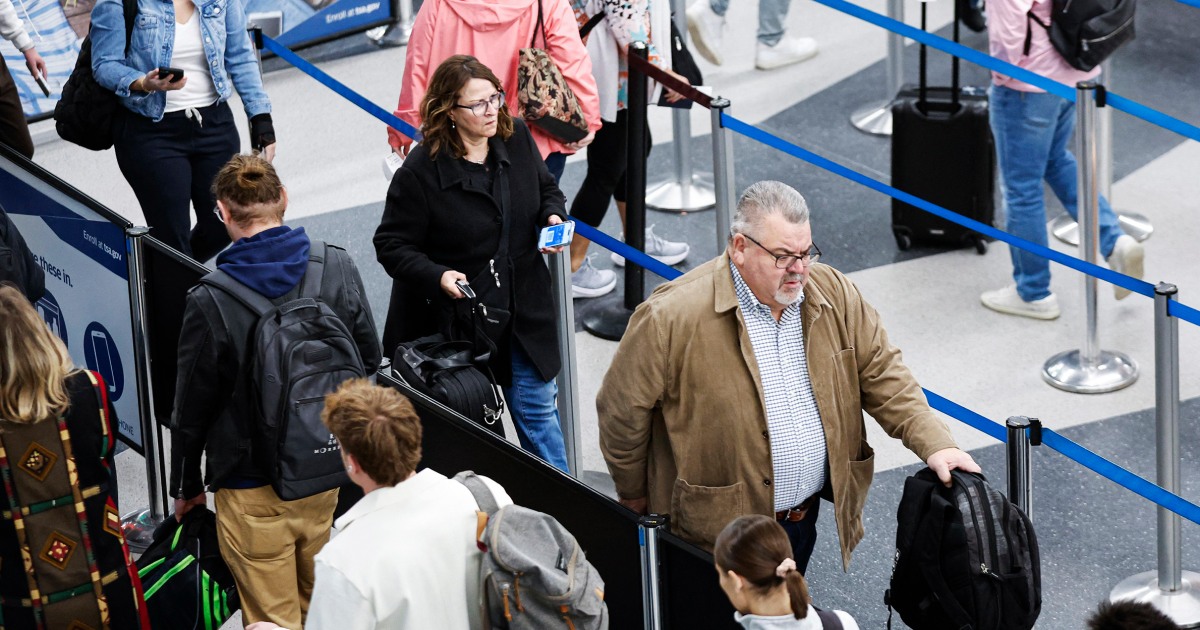Bussiness
Is Your Small Business Losing Money To Check Fraud?

By Rieva Lesonsky
Check fraud accounts for almost 20% of all suspicious activity reports filed.
“No, Rieva, I don’t take checks anymore.” I was surprised to hear these words from one of my long-time home service providers, whom I’ve been paying by check for over 15 years.
“Too risky,” he explained.
As it turns out, check fraud is part of a rising problem in the United States faced by businesses of all sizes. Thomson Reuters recently reported that “the number of suspicious activity reports (SARs) has been steadily rising.”
Thomson Reuters explains that SARs are “one of the most accurate measures of the prevalence of financial crime in any given year” in the U.S. SARs are documents financial institutions must file with the federal government’s Financial Crimes Enforcement Network (FinCEN) “whenever behavior by employees or customers is detected that may be associated with money laundering, fraud, or other types of criminal activity.”
A rise in check fraud
While Thomson Reuters says the incidence of check fraud declined slightly last year, that follows several years of skyrocketing problems. Thomson Reuters reports that before 2021, “check fraud averaged about one quarter-million SARs per year.” However, the number of check-fraud SARs started rising in 2021 to over 350,000 and almost doubled to over 683,000 in 2022.
Last year, “the number of check-fraud SARs fell slightly to 665,505,” a number that Jacob Denman, risk and fraud product manager at Thomson Reuters, calls “shocking.” He says, “It’s hard to see how check fraud could go any higher,” but it might. Denman adds, “Check fraud accounts for almost 20% of all SARs filed. And if you consider that more than half of all SARs are filed by the country’s top five or six banks, and those banks are getting hit close to 100,000 times a year—that’s nuts.”
Chris Wong, head of small business products at Bank of America, notes that “although the overall use of paper checks has decreased in recent years, the prevalence of check fraud has increased significantly, according to the FTC. This rise can be attributed to improved technology and digital capabilities that criminals now have access to, allowing them to more easily fraudulently transfer funds and carry out identity theft.”
Wong explains the three most common types of check fraud:
1. Identity theft. Cybercriminals often steal people’s identities to claim their government benefits and/or tax refunds. Criminals also target your personal information to fraudulently open a credit card or apply for a loan under a fake identity.
2. Transferring funds. This is when someone uses fraudulent checks to move money out of your accounts or to charge purchases to your accounts.
3. Creating duplicate checks. Fraudulent check duplication occurs when a criminal uses washed/chemically altered checks and posts them on the dark web to be exploited.
The rise of check theft and fraud has led to many businesses no longer accepting checks as payment. In July, Target joined companies like Whole Foods and Aldi and stopped accepting checks as payment in stores.
It’s not that easy, however, for small businesses to not accept checks. According to the New York Times, consumer survey data from the Federal Reserve Bank of Atlanta shows that “contractors, like electricians and plumbers, get 25% of their payments by check. Landlords, government taxing authorities, and professional-service firms also receive double-digit percentages of their payments by check.” And it costs businesses at least $1 to $2 to process each check they receive.
No small business is safe from check fraud
Don’t think check fraud is something that happens to other businesses. It can easily happen to you. Scott Regan, chief operating officer at RenewalMD, a plastic and cosmetic surgery practice in Savannah, Georgia, says his company’s accounts payable management process used to be handled by an administrative assistant who sorted through the physical mail and manually entered bills into their accounting system.
Regan says, “It was always a nightmare. We found out after the fact that we had been cutting checks for things that didn’t need to be paid, such as a solicitation or a packing slip.”
Regan recalls that this led to serious financial fraud when someone from another state used their routing and account numbers to write fraudulent checks. He says, “I didn’t want to ever write another check on our bank account because the more checks you have in circulation, the easier it is for someone to lift your routing and account numbers. Anybody can fake a check; it’s really easy.” And what’s worse, Regan says, is their bank wouldn’t help them recover the money.
Adam Rizza, the president of Sunscape Eyewear, a manufacturer and distributor of eyewear in Irvine, California, says that after paying vendors, sometimes “checks go missing, and suddenly someone recreates our checks and deposits them. Some of our vendors have had our checks stolen from their mailboxes. Those were duplicated and deposited into several different bank branches on the same day. It’s a hassle and takes time to call the bank to get it straightened out.”
Fraud isn’t the only problem with checks
Irana Wasti, the chief product officer at BILL, points out the disadvantages of relying on paper checks. Checks take longer to clear, she says, “because banks can put a hold on checks to ensure the drawing bank account has sufficient funds, or if they believe there is a chance of fraud. And checks with higher dollar amounts will likely take even longer to clear.” And while most commercial banks offer a fraud-prevention system for business checks for added security, it can also cause checks to be placed on hold.
Wasti adds dealing with checks can be inefficient. “Checks require extra work (from approvals to mailing) and can create an overwhelming stack of unnecessary paper, ” she says. “The biggest hurdle with paper checks is the need to mail them through the postal system, which takes time and can lead to a lack of transparency in the process. Businesses might have trouble tracking information for checks sent and received. Traditional paper checks also include the sender’s banking information, creating a security risk if the checks are lost or stolen.”
More from AllBusiness:
Alternatives to checks
If your company still issues checks manually, it’s time to go digital. According to Wong, “Modern digital payments are typically backed by stronger cybersecurity measures designed to better protect your small business and personal information.”
He continues, “Digital payments allow for greater security and offer real-time balance information that can be used to track transactions whenever they occur. We also recommend turning on transaction alerts to track the money being withdrawn from your accounts and prevent possible fraudulent charges from negatively impacting your business.”
You can start weaning your business and customers off paper checks by offering them payment alternatives. Since many consumers have already abandoned checks, offering them payment alternatives, such as debit cards, credit cards, electronic wallets, or ACH payments, is key.
Credit cards
If your business doesn’t accept credit cards, you could be losing sales, especially if you sell to consumers. According to Capital One Shopping, U.S. consumers use credit cards to pay for 62.6% of all retail purchases, in-store and online, and 81% of shoppers prefer to pay with cards over cash. Shoppers will spend up to three times as much when they pay with credit cards instead of cash.
For B2B businesses, credit cards are an excellent way to securely pay vendors and collect payments. To accept credit card payments, you’ll need to set up a merchant account, choose a payment gateway provider, or find an AP (accounts payable) Automation Platform.
ACH payments
ACH stands for Automated Clearing House, a digital service that provides a secure system for bank-to-bank transfers of digital payments.
PCMag.com says when searching for new payment methods, “The big challenges for small businesses are twofold: First, determine which combination of payment solutions will work best for your business today; and, second, make sure that whatever choices you make now don’t lock you into a single set of services so you can’t react quickly to new payment opportunities as they emerge.”
Reduce fraud through alternative payment solutions
Since check fraud is pervasive, small businesses must prioritize convenience, security, and efficiency by offering alternative payment and collection solutions to paper checks. Digital transactions provide faster processing, reduce the risk of fraud, and enhance customer satisfaction. Additionally, integrating secure payment gateways helps streamline operations.
Embracing modern payment solutions simplifies transactions and builds trust and loyalty with customers and vendors.
About the Author
Rieva Lesonsky creates content focusing on small business and entrepreneurship. Email Rieva at rieva@smallbusinesscurrents.com, follow her on Twitter @Rieva, and visit her website SmallBusinessCurrents.com to get the scoop on business trends and sign up for Rieva’s free Currents newsletter.
RELATED: How to Prevent B2B Payment Fraud With Vigilance and the Right Tech









